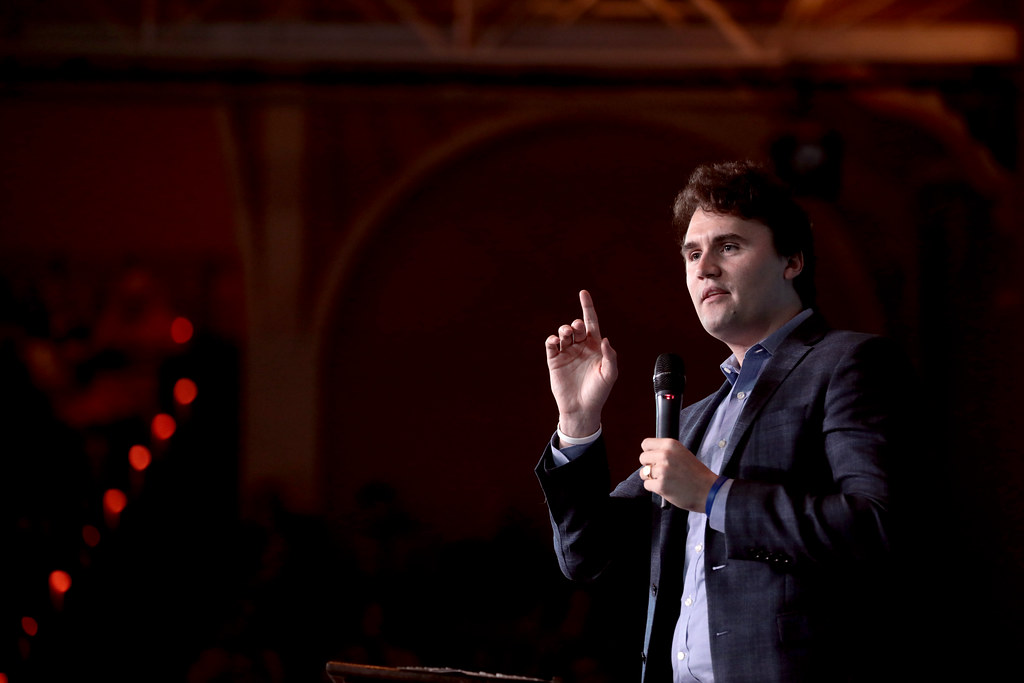Key Takeaways:
- Charlie Kirk is facing criticism and alleged donor pressure over his changing views on Israel.
- Both right- and left-wing voices are speaking out about the situation.
- The mainstream media has mostly avoided covering the controversy.
- Some speculate that financial and political influences are shaping public statements on the topic.
What’s Behind Charlie Kirk’s Israel Controversy?
Charlie Kirk, the outspoken conservative founder of Turning Point USA, is at the center of a brewing political storm. Over the past few weeks, he’s taken a more critical tone toward Israel—a move that has shocked many of his usual supporters and raised eyebrows across the political spectrum.
But here’s where it gets even more interesting. Some people now claim that Kirk is being pressured by donors and behind-the-scenes players to change or walk back his new stance.
This issue, circling around Charlie Kirk and Israel, isn’t just about one man’s opinion. It’s about power, influence, and how open political conversation really is when big money and strong opinions are involved.
What Did Charlie Kirk Say About Israel?
For years, Charlie Kirk has been a notable voice in supporting Israel. However, in recent months, he expressed concerns about how American support for Israel is impacting U.S. foreign policy and priorities. He also questioned some actions by the current Israeli leadership, including Prime Minister Benjamin Netanyahu.
These new comments may not sound groundbreaking, but for someone in Kirk’s position—a rising star in conservative circles—they’re seen as a major shift. And with that shift came backlash.
Some of it came from online followers, but others believe the real pushback came from powerful donors and political groups not keen on that change of tone.
Voices from Both Sides Speak Out
Interestingly, criticism of the pressure Kirk is allegedly facing isn’t just coming from one political group. In fact, it’s rare to see conservative figures like Candace Owens and Tucker Carlson on the same page as progressive journalist Max Blumenthal—but they all seem to agree that something deeper is going on.
Owens has spoken out online in defense of Kirk’s right to question Israel without being “canceled.” Carlson, who has taken aim at America’s foreign entanglements before, suggested that this kind of pressure reveals how sensitive and protected discussions on Israel have become.
On the opposite end, Max Blumenthal of The Grayzone—a site often aligned with anti-war and left-wing critiques—also raised concerns. He pointed out that crossing the line on the Israel topic can lead to smear campaigns and financial consequences.
Is the Media Skipping the Story?
Despite gaining traction online, mainstream media outlets have mostly ignored the alleged pressure campaign. Either they haven’t mentioned it at all or chose to report Kirk’s evolving stance without addressing the surrounding drama.
Some critics argue that this silence shows how tightly controlled certain topics are in major media spaces, especially when powerful interests are involved.
Interestingly, the moment Israeli Prime Minister Netanyahu made a public statement related to American-Israeli relations, it caught immediate headlines. But any link to Kirk’s situation didn’t make the front pages.
That raises questions: Are media outlets avoiding the story to protect relationships, or is it simply not considered newsworthy?
Money, Influence, and Free Speech
At the heart of this story is a serious issue—how much control do big donors have over what public figures are allowed to say?
If someone like Charlie Kirk—backed by large conservative organizations and donors—isn’t safe to question Israel without backlash, what does that say about free speech?
Supporters of Kirk argue that being pro-America sometimes means questioning America’s alliances, even historic ones. Critics, however, fear that his recent messages could fuel antisemitism or weaken US-Israel ties at a crucial time.
Balancing Criticism Without Hate
Let’s be clear—there is a big difference between criticizing a government’s actions and supporting hate. One of the challenges in discussing Israel is finding that line.
Opponents of Kirk’s newer views argue that going soft on support for Israel helps fringe viewpoints creep into mainstream conversations. Others claim that shutting down these talks actually causes more harm by pushing genuine concerns underground.
Kirk himself hasn’t directly responded to claims about donor pressure, leaving room for more speculation and mystery.
What Happens Next for Charlie Kirk?
No one knows for sure where this will lead. Kirk is still hosting shows and leading Turning Point USA. His audience remains large, and his platform strong.
But if he begins to change his tone again, people will likely question whether the shift was genuine or the result of pressure behind the scenes.
This situation also sets the stage for more public figures on all sides to speak out—or stay silent—on Israel-related issues.
Charlie Kirk and Israel: A Bigger Conversation
The Charlie Kirk Israel discussion is just the surface of a bigger debate. Can influencers and political voices truly speak freely? Or are hot-button topics like Israel off-limits due to powerful outside pressure?
Whether or not you agree with Kirk’s stance, it’s clear that conversations about Israel in U.S. politics come with real consequences. This case could shape how Americans think about free speech, donor influence, and the media’s role in guiding attention.
As this story continues to unfold, it shines a light on just how messy and important political speech really is.
Frequently Asked Questions:
Why is Charlie Kirk being criticized?
He’s facing criticism for changing his stance on Israel. Some believe donors are pressuring him to stick to old views.
Did Charlie Kirk say anything bad about Israel?
He didn’t attack Israel but raised questions about U.S. support and recent actions by its government. That alone sparked major backlash.
What do others think about this issue?
People from both the political right and left are defending his right to question Israel. They say he’s facing pressure to stay quiet.
Has Charlie Kirk changed his views again?
It’s unclear. While he’s spoken less about the issue lately, he hasn’t directly addressed claims that he’s being silenced or pushed back.
